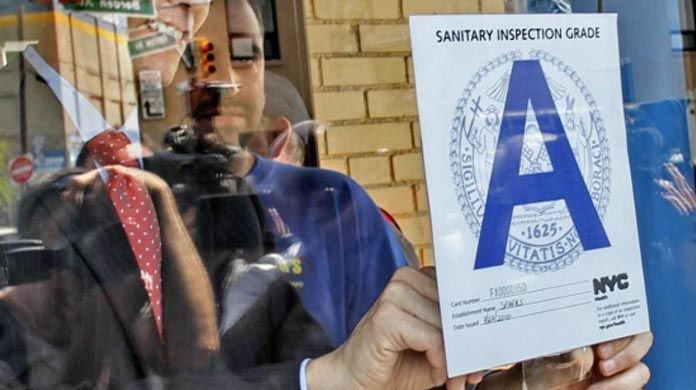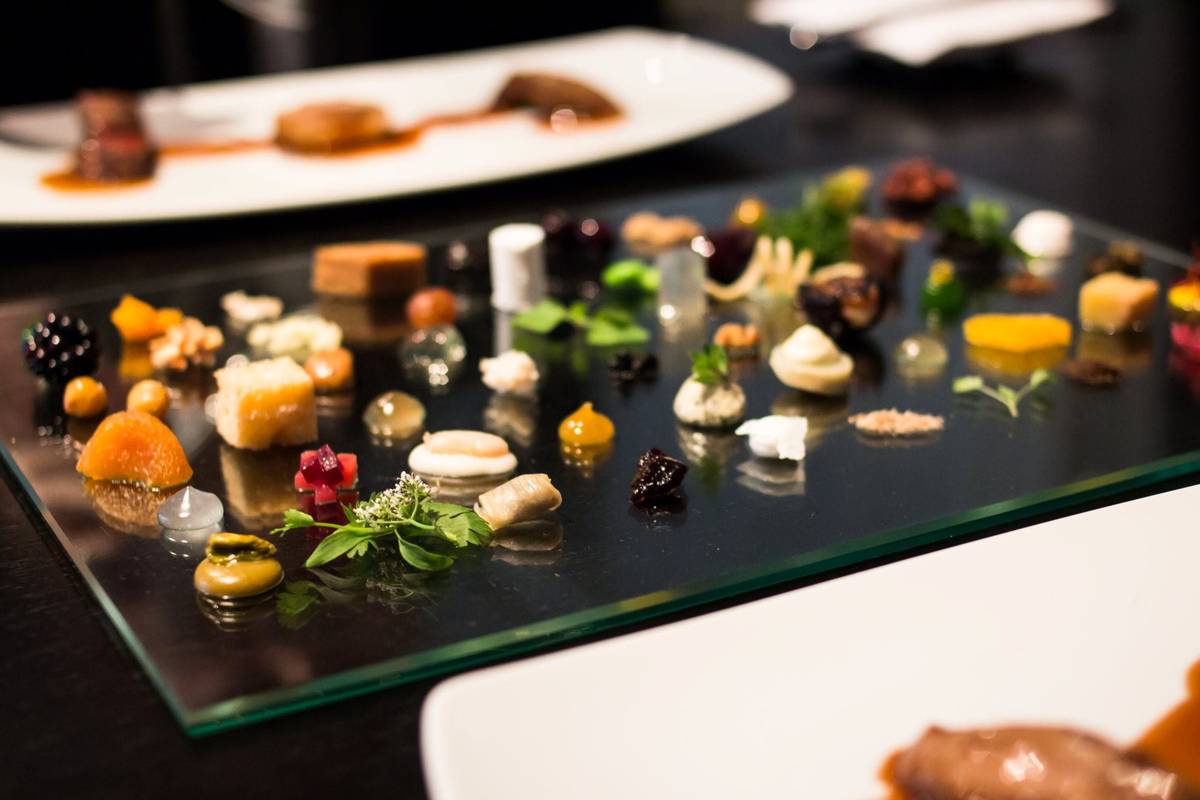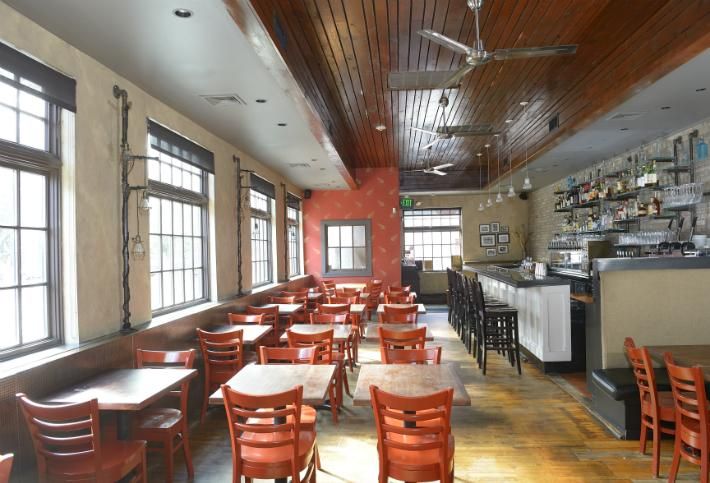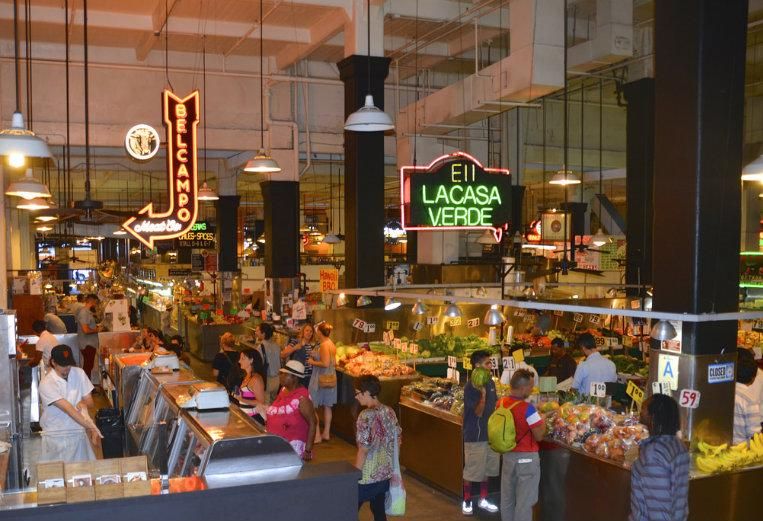
Jul 27, 2018
Andria Cheng | Forbes | July 24, 2018
Restaurants and other food service operators with subpar hygiene and health inspection records, take note: Review site Yelp is set to display those scorecards on business pages listed on its platform nationwide.
Yelp, which first began to post such information on some business pages in select markets in 2013, said the rollout will begin Tuesday with some 350,000 restaurants, or 40% of its U.S. restaurant listings. That includes the pages of well-known New York spots like Gramercy Tavern and Katz’s Delicatessen (both are graded A). That number will increase to 750,000 pages in the coming months, Yelp said.
The San Francisco-based company said it collects data from working directly with local governments or from the startup HDScores, which said it has a database of health inspection reports on nearly 1.2 million U.S. restaurants, covering three-quarters of the U.S. population across 42 states.
While consumers can already dig up public health inspection records on, say, local governments’ websites, or see them pasted on store windows, Yelp’s latest move could have a ripple effect on the restaurant industry because mobile-phone-toting consumers often resort to reviews and recommendations on the app before deciding on which local restaurants to go to or order from. In a letter to shareholders in May, Jeremy Stoppelman, Yelp’s CEO and cofounder, said that more than 30 million unique mobile devices accessed the Yelp app on a monthly average basis. Its restaurants listings help drive more than half of traffic to Yelp, he said.
CONTINUE READING

Jul 21, 2018
Jeff Ruby & Carrie Schedler | Chicago Magazine | July, 2018
Chicago’s essential destinations, from haute tasting menus to inventive street food.
No. 1: Alinea
No. 2: Oriole
No. 3: Lula Cafe
No. 4: Schwa
No. 5: Topolobampo
Full List

Jul 14, 2018
Matthew Rothstein | Bisnow Philadelphia | June 1, 2018
A new coworking app is set to launch in Philadelphia with the goal of reducing the industry’s cost and dependence on office buildings.
WEach Seats, the brainchild of husband-and-wife duo Matthew Weaver and Sarina Chernock, offers daytime space in restaurants that would otherwise be closed until dinner to users at prices far below memberships at standard coworking spaces like WeWork and 1776. The app is beta testing in the iPhone App Store and Google Play with hopes to officially launch this month.
A restaurant that partners with WEach Seats is only required to have one staffer on-site to provide free coffee to users and office supplies, which are provided by WEach Seats. The app has agreements already in place with four restaurants: Ela in Queen Village, Paris Wine Bar in Fairmount, Bar One in Bella Vista and Writer’s Block Rehab in Midtown Village.
WEach Seats targets areas for partnerships based on the number of users from each ZIP code who log onto the app. Weaver and Chernock told Bisnow that they already have enough users to launch in the 19147 ZIP code, which includes Bella Vista and part of Queen Village. The couple anticipates Fairmount reaching critical mass by the end of the month.
The advantage of WEach Seats model is the nearly total lack of infrastructure required, Weaver and Chernock said. If the app has an agreement in place with a restaurant and enough users in that ZIP code to justify opening, the service can open almost immediately. Even without any restaurants signed up, WEach Seats has already seen logins expressing interest in the Graduate Hospital, Kensington and Fishtown areas.
CONTINUE READING

Jun 29, 2018
Ashok Selvam | Eater Chicago | June 26, 2018
No, the sky isn’t falling, but a Tuesday morning report puts the future of The Wiener’s Circle in doubt. The 36-year-old Lincoln Park hot dog stand is famous for spirited late-night banter between customers and staff. There are plans to sell the property where the 700-square-foot stand stands on the 2600 block of North Clark Street. The landlord wants to bundle the hot dog stand with a neighboring apartment building — which houses Snow Dragon Shavery — and that could make the combined 12,942-square-foot property attractive for a developer with a larger project in mind.
A for sale listing like this — a real estate property that includes an existing restaurant — isn’t unusual. Often the restaurant continues unaffected, even if the property it sits on changes hands.
The Wiener’s Circle’s future depends on whether a new property owner chooses to demolish the stand and the neighboring building or just sit back and let the chocolate shakes keep flowing. However, as Crain’s reported, Wiener’s Circle’s owners are interested in buying the property themselves and leaving the Chicago food landmark intact. That’s a group headed by Ari Levy of Levy Family Partners. They’re the ones who are opening Aloha Poke Co. locations around the country.
The Wiener’s Circle just opened a location inside a new minor league baseball stadium in Rosemont and there was a Las Vegas location that closed. Lately, the hot dog stand has lent its humor to the restaurant’s marquee with a mix of messages bashing President Trump. During baseball season, the marquee celebrates the Cubs as Wrigley Field is less than two miles north. For the past few Halloweens and April Fools Days, this location has donned costumes. It transformed to McDowell’s, the McDonald’s parody from Eddie Murphy’s 1988 film Coming to America. In April 2017, the restaurant joked that it had been annexed by Russian President Vladimir Putin. The move was another shot at Trump.
A broker speaking to Crain’s said that they want to maximize the property’s value. There’s a small parking lot that leads into an alley behind the hot dog stand and there are picnic tables in front. The broker argued that the restaurant isn’t the best use of the property. The stand is on a month-to-month lease.
CONTINUE READING

Jun 22, 2018
Cameron Sperance | Bisnow | June 17, 2018
The restaurant industry was the perceived saving grace of shopping centers during the retail apocalypse. When mall owners were faced with the conundrum of how to fill vacant spaces, food and beverage concepts were a viable solution. But now even restaurants are facing a wave of closings due to overexpansion, especially midpriced casual chains like Applebee’s and Ruby Tuesday. While the formerly reliable sector suffers, continued consumer demand for locally sourced, small-scale fast-casual restaurants is garnering the attention of developers looking for new tenants — even if they aren’t as well-known as the industry’s bigger, high-credit chains.
“The idea now is that property owners are underwriting their projects with the understanding they won’t be reliant for rent on those particular spots,” JLL Retail Director of Research James Cook said. “If you look at retail as an amenity, there’s some cost in putting that in, and you might just break even with the retail rents. But if you have attractive retail and a multifamily component, it boosts those multifamily rents — the same with an office.”
The market is adjusting in favor of independent restaurants and fast-casual brands with organic or local ties that millennials crave. Fast-casual, upscale-casual and fine dining were the restaurant industry’s leading performers in 2017 and have continued to post strong sales in 2018. Fast-casual brands have increased growth by 2% since 2017, according to TDn2K Black Box Intelligence data, and developers continue to take on the financial burden of bringing these companies to a variety of properties.
“We’re certainly seeing that there is a shift in the way mall owners are looking at integrating food to their asset,” JLL Retail President Naveen Jaggi said. “The food court today in a nice mall is much more locally driven than Chick-fil-A or Chipotle. There is a greater desire for authenticity not just for a mall owner but for the consumer.”
CONTINUE READING





